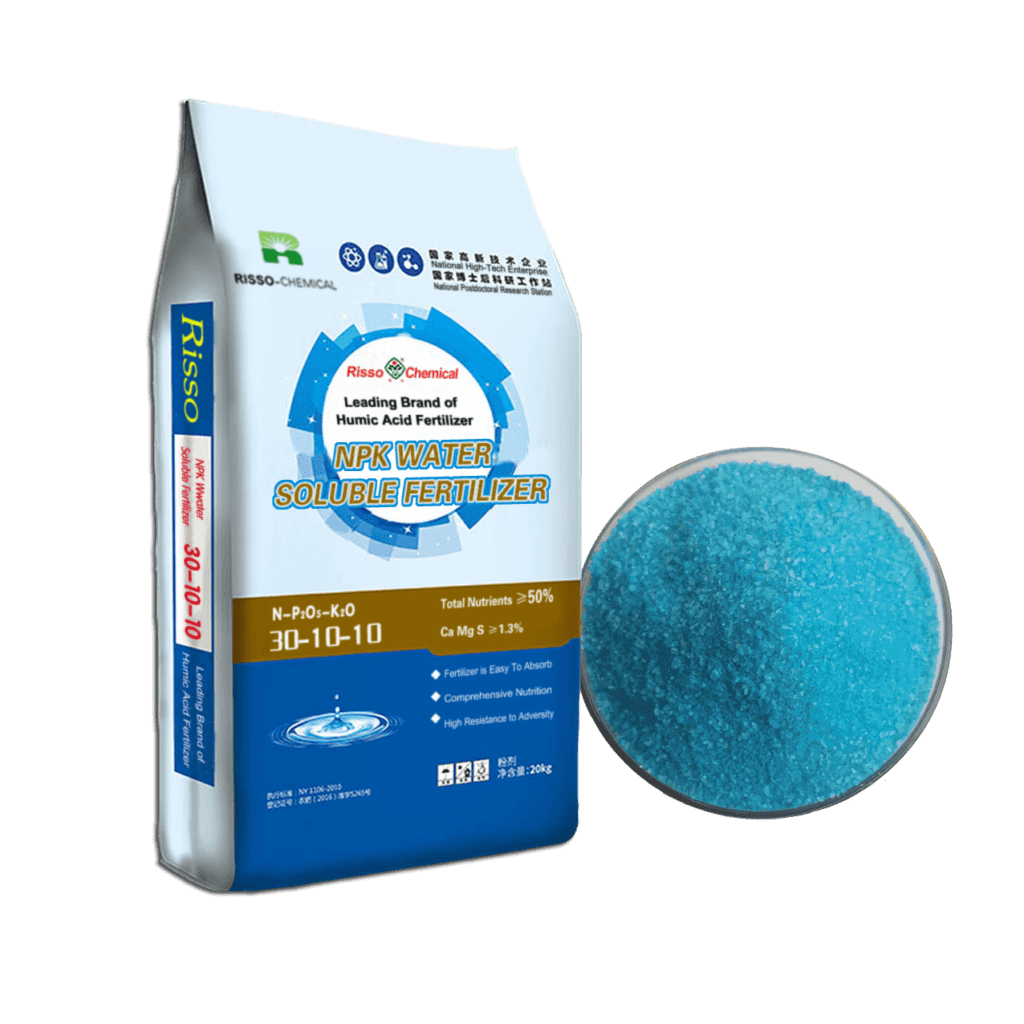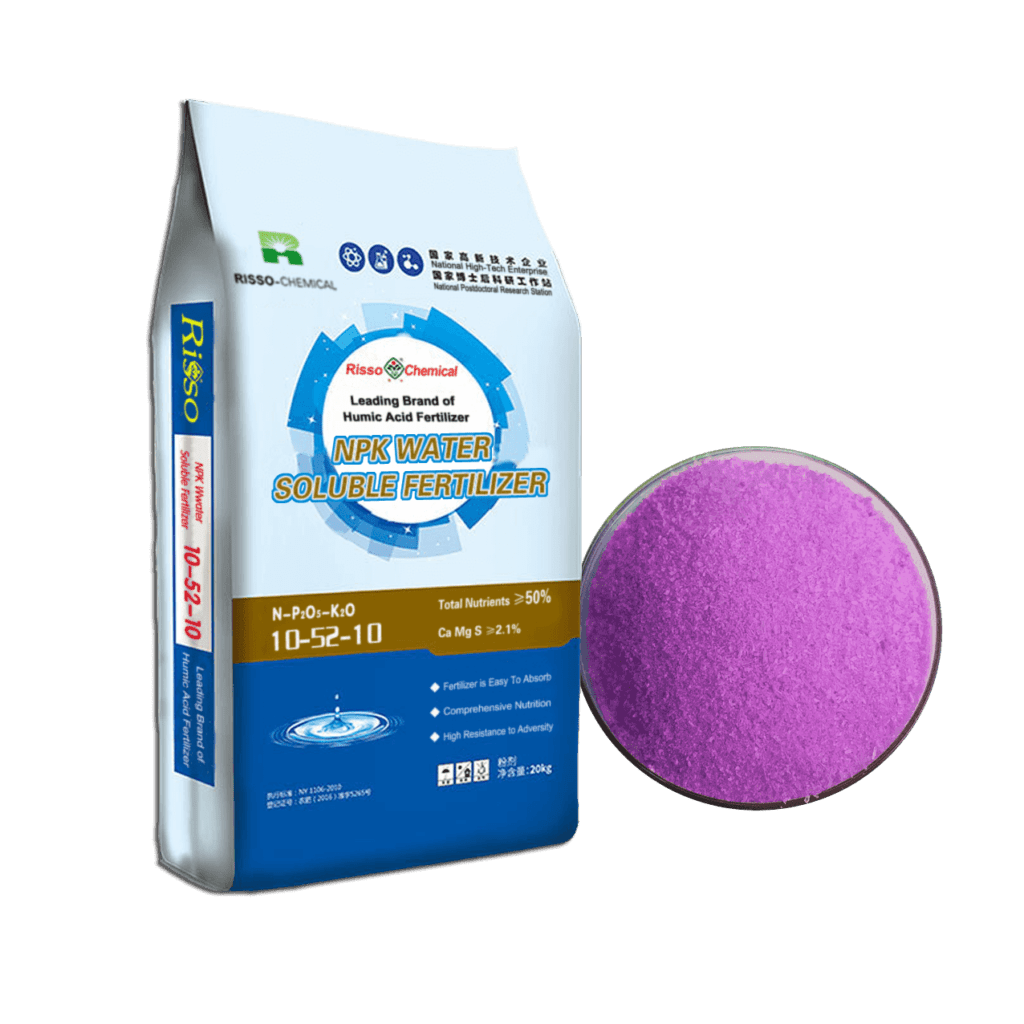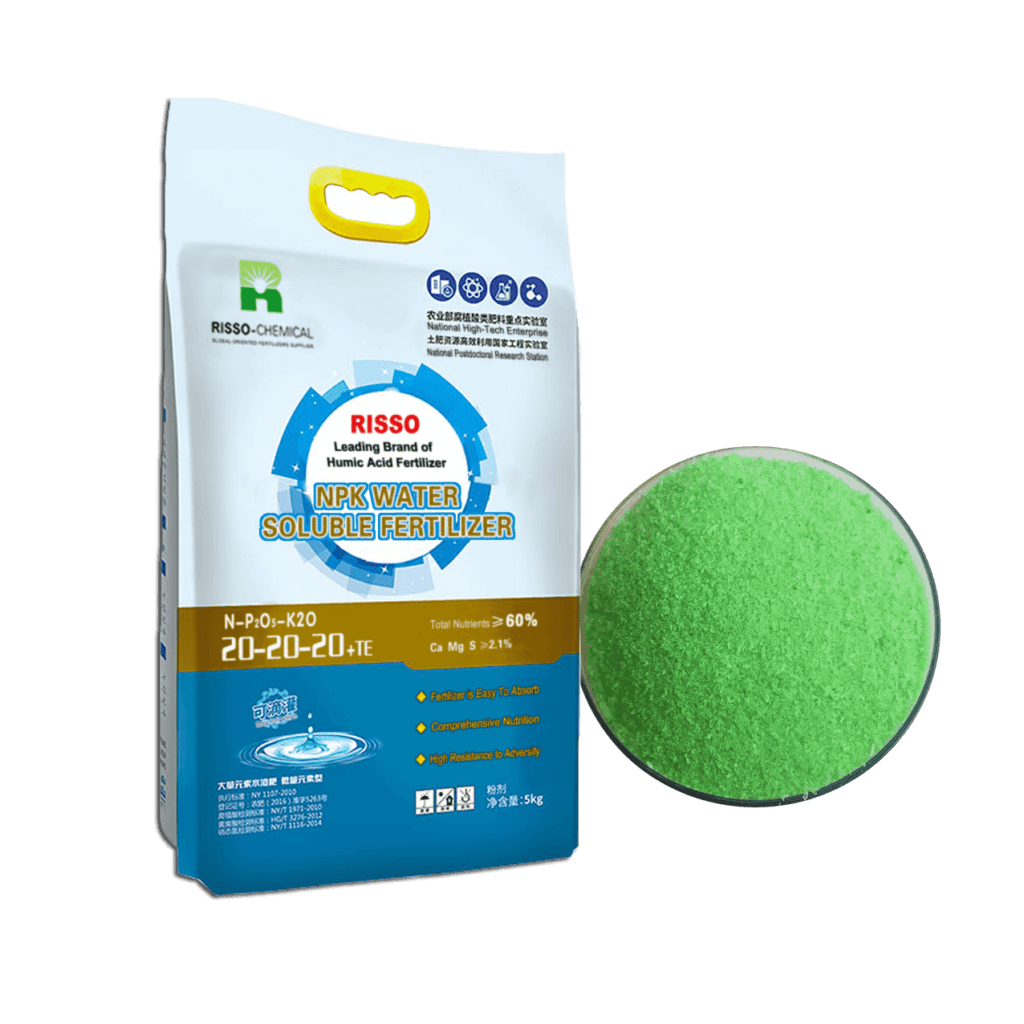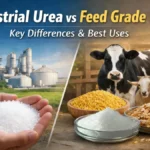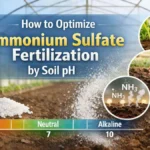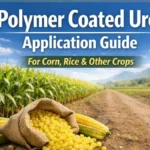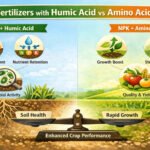Let more growers get greater benefits
Pros and Cons of Water Soluble Fertilizers in Agriculture
- Industry News
- December 12, 2017
- 10:07 am
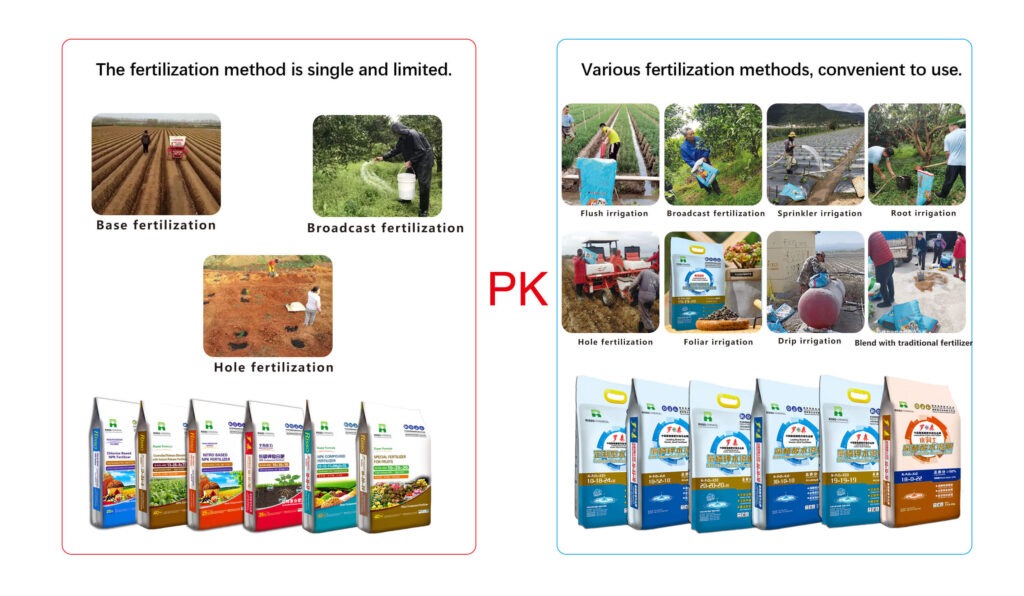

Water soluble fertilizers (WSFs) are essential in modern farming, delivering nutrients quickly and efficiently. Fully dissolvable in water, they ensure rapid absorption by plant roots or leaves. Used in conventional farming, hydroponics, and fertigation, WSFs offer precise nutrition but come with unique challenges. Understanding their benefits, drawbacks, and applications based on NPK fertilizer types and NPK ratios is key to maximizing crop yield and sustainability. This blog explores their pros, cons, and best practices for effective use.
Table of Contents
What Are Water Soluble Fertilizers?
Water soluble fertilizers are specially formulated nutrient products designed to dissolve completely in water, providing plants with essential macronutrients (such as nitrogen, phosphorus, and potassium) and micronutrients (like zinc, iron, and manganese) in an easily absorbable form. These fertilizers come in liquid, powder, and granular forms, and their primary feature is the ability to be mixed with water and applied directly to plant roots or leaves.
Water soluble fertilizers are particularly favored for their ability to be used in fertigation systems (where nutrients are injected into irrigation systems), hydroponic farming, and foliar feeding. Their solubility enables them to be absorbed rapidly, offering quick results for plants in need of immediate nutrient supplementation.
Pros of Water Soluble Fertilizers
- Rapid Nutrient Absorption for Quick Growth The immediate availability of nutrients in water soluble fertilizers makes them incredibly effective for promoting rapid plant growth. Nutrients are quickly absorbed by plant roots or leaves, delivering essential elements when plants need them the most. This is especially beneficial during crucial growth phases such as flowering, fruiting, or stress recovery, when plants have a heightened nutrient demand.
- Precision and Customization in Fertilizer Application Water soluble fertilizers provide precision in nutrient delivery, allowing farmers and gardeners to adjust the nutrient mix according to crop-specific requirements. For example, a higher concentration of nitrogen can be applied during the vegetative stage for robust leaf growth, while higher phosphorus can be used for root development and potassium for fruit and flower production. This level of control ensures that plants receive exactly what they need at the right time, minimizing the risk of nutrient deficiencies.
- Highly Compatible with Fertigation and Irrigation Systems Water soluble fertilizers are a perfect fit for fertigation systems, where nutrients are applied through irrigation methods such as drip, flood, or sprinkler systems. This allows for uniform distribution of fertilizers, ensuring that every plant in a field or greenhouse receives an equal share of essential nutrients. Additionally, fertigation reduces the labor and cost associated with manual fertilizer application.
- Ideal for Hydroponics and Controlled Environment Agriculture In hydroponic systems, plants grow in nutrient-rich water solutions rather than in soil, making water soluble fertilizers a vital component of the nutrient solution. Hydroponic and vertical farming systems require fertilizers that can be rapidly dissolved and absorbed, ensuring that plants receive a consistent and balanced supply of nutrients. Soilless farming systems, including aquaponics, also rely on water soluble fertilizers for optimized growth.
- Versatility in Application Methods One of the most significant advantages of water soluble fertilizers is their versatility in application. They can be applied in several ways, including through irrigation systems, foliar sprays, or direct soil application. Foliar feeding is particularly effective in correcting nutrient deficiencies quickly, as nutrients are absorbed directly through the leaves, bypassing potential soil issues.
Cons of Water Soluble Fertilizers
- Potential for Nutrient Leaching and Runoff The quick solubility of water soluble fertilizers means that any unused nutrients can easily leach into the soil or be carried away by rainfall or irrigation. This nutrient leaching and runoff not only wastes the fertilizer but can also contribute to water pollution and eutrophication in nearby water sources, leading to harmful algal blooms and biodiversity loss. Careful management of irrigation schedules and runoff mitigation strategies are critical to avoid these environmental issues.
- Short-Term Nutrient Availability Unlike slow-release fertilizers that gradually supply nutrients over an extended period, water soluble fertilizers provide a rapid burst of nutrients. While this is beneficial for quick plant growth or recovery, their effects are often short-lived. Frequent applications are necessary to maintain optimal nutrient levels, which may lead to increased labor costs and input costs in large-scale operations.
- Risk of Over-Fertilization and Nutrient Imbalance Water soluble fertilizers are concentrated and can cause over-fertilization if not carefully managed. Since they dissolve completely in water, they can quickly be absorbed by plants, which makes it easy to accidentally apply more nutrients than necessary. Over-fertilization can result in nutrient burn, plant toxicity, and environmental pollution. Monitoring nutrient levels and following recommended dosage and application intervals are key to avoiding this issue.
- High Operational Costs for Large-Scale Use While water soluble fertilizers are highly efficient, they can be more expensive than traditional granular fertilizers, particularly for large-scale farming operations. Additionally, fertigation systems and other advanced application technologies require initial investment and regular maintenance. For large-scale farms, the recurring costs of frequent applications may increase overall production expenses.
- Salt Build-Up in Soil Over time, the salts in water soluble fertilizers can accumulate in the soil, particularly in areas where irrigation systems are used frequently. This salt build-up can negatively affect soil structure, water retention, and root health. Farmers should regularly test soil salinity and use leaching techniques (watering the soil with excess water) to avoid this issue.
Applications of Water Soluble Fertilizers
- Field Crops Water soluble fertilizers are commonly used in the production of field crops like corn, wheat, soybeans, and rice. These fertilizers ensure uniform nutrient distribution, especially in large fields, and provide essential nutrients during growth stages that require high nutrient uptake, such as flowering or grain filling.
- Greenhouses and Controlled Environment Agriculture In greenhouses, where controlled conditions are necessary for optimal plant growth, water soluble fertilizers are the go-to solution for nutrient management. These fertilizers allow growers to adjust nutrient levels based on specific plant needs, optimizing yield and quality in a confined environment.
- Hydroponic and Vertical Farming Systems Hydroponics and vertical farming are rapidly growing agricultural systems that rely on water soluble fertilizers to ensure nutrient availability in water-based solutions. These systems allow for precise nutrient control, which is crucial in maintaining plant health without the use of soil.
- Horticulture and Landscaping Horticultural growers and landscape professionals use water soluble fertilizers to boost plant performance. These fertilizers are effective for a wide range of plants, from ornamental flowers and shrubs to fruit trees and vegetable gardens.
Best Practices for Using Water Soluble Fertilizers
- Accurate Dilution and Application Always follow the manufacturer’s recommendations regarding dilution rates and application frequency. Over-application can lead to nutrient imbalances, while under-application may not provide sufficient nutrition. Adjust the application according to crop requirements and growth stages.
- Use with Efficient Irrigation Systems Integrating water soluble fertilizers with an efficient fertigation system can significantly improve nutrient uptake. Consider implementing drip irrigation or other targeted irrigation methods to ensure that the nutrients are delivered directly to the plant roots.
- Regular Soil Testing To prevent salt build-up and nutrient imbalances, conduct regular soil testing. Testing will help you understand the existing nutrient content and guide fertilizer applications to avoid over-fertilization and environmental damage.
- Combine with Slow-Release Fertilizers Consider using water soluble fertilizers in combination with slow-release fertilizers for long-term nutrient supply. This combination helps to sustain plant growth and prevent nutrient fluctuations.
Conclusion: Maximizing the Benefits of Water Soluble Fertilizers
Water soluble fertilizers are a powerful tool in modern agriculture, providing fast nutrient uptake and precise control over fertilizer applications. Their benefits make them ideal for fertigation, hydroponic systems, and high-demand farming systems. However, like all agricultural inputs, they require careful management to prevent issues such as nutrient runoff, over-fertilization, and high operational costs.
By adopting the best practices outlined in this blog, farmers and gardeners can optimize the use of water soluble fertilizers to enhance crop yields, improve plant health, and contribute to more sustainable farming practices. Understanding both the pros and cons will ensure that water soluble fertilizers are used efficiently, reducing environmental impact and maximizing profitability.
Water Soluble Fertilizers Related Products
If you want to know other questions about Compound fertilizers or Blended fertilizers, please contact us and we will provide professional answers.
- Article
What will you get when touch?
✔ Quick & helpful reply within 6 hours.
✔ Tailored solutions for your project.
✔ One-stop product, tech, market
TRENDING
Want to find a China fertilizer manufacturer?
Risso will be your best choice; send us your request for your fertilizer details requirement
TAIAN RISSO CHEMICAL FERTILIZER CO.,LTD.
- Address: High-tech Development Zone, Taian City, Shandong Province
© Copyright 2017 RISSO CHEMICAL. All Rights Reserved.



